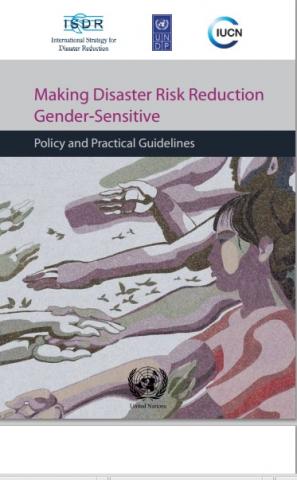Making Disaster Risk Reduction Gender Sensitive


Disasters don’t discriminate, but people do. Existing socio-economic conditions mean that disasters can lead to different outcomes even for demographically similar communities – but inevitably the most vulnerable groups suffer more than others. Research reveals that disasters reinforce, perpetuate and increase gender inequality, making bad situations worse for women. Meanwhile, the potential contributions that women can offer to the disaster risk reduction imperative around the world are often overlooked and female leadership in building community resilience to disasters is frequently disregarded.
This pivotal publication offers much-needed policy and practical guidelines for national and local governments to further implement the HFA. Disaster risk reduction that delivers gender equality is a cost-effective win-win option for reducing vulnerability and sustaining the livelihoods of whole communities. Urgent risk reduction action from the global to the local level is also crucial for tackling climate change adaptation, and for strengthening overall development gains in an integrated manner. We hope this landmark document will help reverse the slow and inconsistent progress thus far on confronting these pressing challenges.
